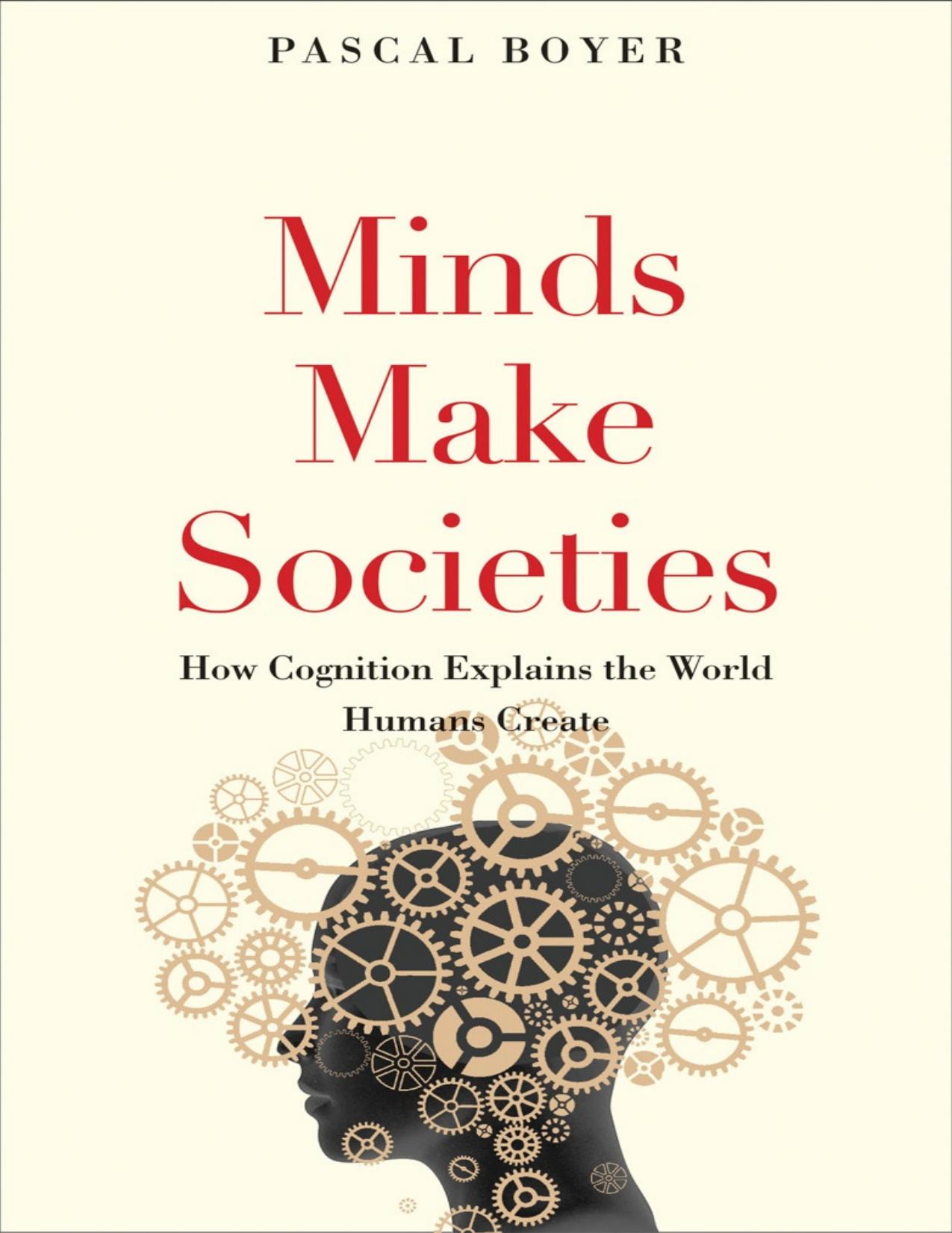Minds Make Societies: How Cognition Explains the World Humans Create by Pascal Boyer

Author:Pascal Boyer [Boyer, Pascal]
Language: eng
Format: epub, mobi, pdf
ISBN: 9780300223453
Google: 5JJVDwAAQBAJ
Amazon: 0300223455
Publisher: Yale University Press
Published: 2018-01-15T00:40:40.400000+00:00
The Psychology of Exchange
However limited compared to modern commerce, prehistoric trade demonstrates that humans had at some point developed the specific psychological capacities that make it possible to exchange goods and services for other goods and services, a form of interaction that is very rare in nature.
The capacity to trade seems to be uniquely human. To us, trade seems both transparent and rational. What could be simpler than giving away what you do not really need, for what you want but do not possess? The fact that something is transparent or self-evident does not mean that it is simple. It indicates that the systems that make it possible are well designed, and designed to do their work away from conscious inspection. So if we try to look under the hood of trade, so to speak, what mechanisms can we see?
First, obviously, agents who trade goods or services must be able to measure their respective utilities and infer that gaining one is worth losing the other. This is both entirely self-evident to human minds, from an early age, and almost unfathomable to organisms of most other species. We immediately see that barter can solve what economists called a coincidence of needs—as when I really want bread but have too many sausages, while you are in the exact opposite predicament. Just describing the situation, for human minds, immediately suggests the solution. And we intuitively appreciate that the transaction makes both parties better off. But this is a special cognitive adaptation, which is why it is so rare in nature. True, there are many cases of reciprocity in the animal kingdom. Grooming among primates is a familiar example. In the same way, vampire bats store blood and regurgitate it into the mouths of companions that did not succeed in finding prey, with the expectation that the companions will return the favor at some point. But these are all deferred exchanges of the same good or service. They rarely if ever include different kinds of objects, trading, for example, grooming for food. There are also instances of quasi-exchange in the context of gifts for sex, but that is generally restricted to only one type of service or object.
By contrast, generalized trade requires, precisely, the ability to consider a large variety of goods as possible items of exchange and, crucially, the capacity to evaluate the value of one good against some amount of another good by a common measure of utility. Neuroeconomic studies illuminate the neural systems involved in valuation and decision making, in how individuals compare the expected utility of various choices, for example, prefer one kind of good to another, or some amount now as opposed to more later. They show that similar circuitry and processes can be observed in close primate species, like monkeys and humans.47 Indeed, some nonhuman animals can be trained to trade and even use currency tokens. But such behaviors clearly do not belong in these species’ evolved repertoire, while they are ubiquitous in humans.48
A second set of skills is the capacity to represent ownership, in a flexible and subtle manner that allows exchange.
Download
Minds Make Societies: How Cognition Explains the World Humans Create by Pascal Boyer.mobi
Minds Make Societies: How Cognition Explains the World Humans Create by Pascal Boyer.pdf
This site does not store any files on its server. We only index and link to content provided by other sites. Please contact the content providers to delete copyright contents if any and email us, we'll remove relevant links or contents immediately.
The Art of Thinking Clearly by Rolf Dobelli(10489)
Mindhunter: Inside the FBI's Elite Serial Crime Unit by John E. Douglas & Mark Olshaker(9343)
Change Your Questions, Change Your Life by Marilee Adams(7782)
Nudge - Improving Decisions about Health, Wealth, and Happiness by Thaler Sunstein(7707)
Mastermind: How to Think Like Sherlock Holmes by Maria Konnikova(7347)
The Power of Now: A Guide to Spiritual Enlightenment by Eckhart Tolle(5781)
Men In Love by Nancy Friday(5240)
Altered Sensations by David Pantalony(5104)
Factfulness: Ten Reasons We're Wrong About the World – and Why Things Are Better Than You Think by Hans Rosling(4742)
The Confidence Code by Katty Kay(4260)
Thinking in Bets by Annie Duke(4227)
Man and His Symbols by Carl Gustav Jung(4137)
The Worm at the Core by Sheldon Solomon(3487)
Why Buddhism is True by Robert Wright(3453)
Liar's Poker by Michael Lewis(3449)
Three Women by Lisa Taddeo(3433)
The Inner Life of Animals by Peter Wohlleben(3319)
Descartes' Error by Antonio Damasio(3279)
How Music Works by David Byrne(3270)
